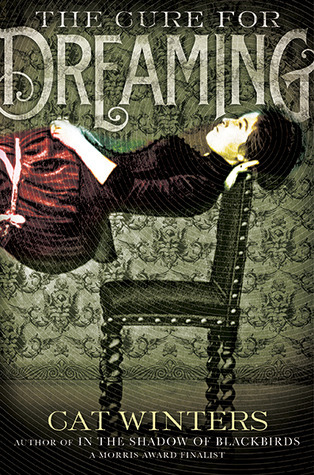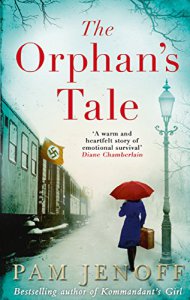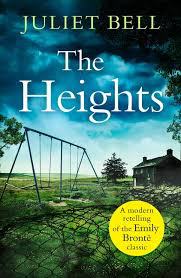 Title: The Cure for Dreaming
Title: The Cure for Dreaming
Author: Cat Winters (twitter) (site)
Publisher//Release Date: Amulet Books// October 14, 2014
Genre: YA, Historical, Paranormal
Source: Library
Goodreads Amazon Barnes and Noble
Synopsis: Olivia Mead is a headstrong, independent girl—a suffragist—in an age that prefers its girls to be docile. It’s 1900 in Oregon, and Olivia’s father, concerned that she’s headed for trouble, convinces a stage mesmerist to try to hypnotize the rebellion out of her. But the hypnotist, an intriguing young man named Henri Reverie, gives her a terrible gift instead: she’s able to see people’s true natures, manifesting as visions of darkness and goodness, while also unable to speak her true thoughts out loud. These supernatural challenges only make Olivia more determined to speak her mind, and so she’s drawn into a dangerous relationship with the hypnotist and his mysterious motives, all while secretly fighting for the rights of women. Winters breathes new life into history once again with an atmospheric, vividly real story, including archival photos and art from the period throughout.
Rating: 3/5
This is another book that has been following me around for years and I just got around to reading it. Historical fantasy books are kind of my thing and, if you write one, I’m probably going to read it – eventually.
The Cure For Dreaming has a lot going for it, and I did enjoy it, but it’s not without its faults and missed chances – especially when it comes to secondary characters and the romantic subplot.
Let’s break it down:
What I Liked:
- Olivia. I thought Olivia was a very solid heroine. She was very much ahead of her time, headstrong and independently minded, but still likable and sympathetic. I really liked her point of view because she gives a semi-modern tone to a historical story.
- The Setting. 1900 Oregon is kind of unique setting – don’t think I’ve ever read a book set in Oregon before. The time period was the most interesting part. It’s played out through Olivia and her father: women who wanted the right to vote and the men in their lives who wanted to keep them under control.Reading from her point of view made me think about a lot of things that women may take for granted in America now – education, voting rights, etc. – that women in 1900 had to fight to get in the first place. There were also women totally opposed to suffrage – which is something that I knew existed but didn’t really think about and you get to see a good deal of them in the novel. You get a good sense of the points of view of both sides of the issue – one side may be wrong, but they tell you why they thought the way they did – always a good thing. Somewhat related to this point, my library’s edition of the novel had a timeline in the back chronicling the suffrage movement in the United States, not just for woman, but minorities as well. I history nerded out over that.
What I Didn’t Like:
- The Romance. It was very, very meh. I didn’t really see the necessity in the book having romantic subplot at all. Its more of a friends with benefits situation (they have a specific label that they put on within the story that’s more fitting). Personally, I had a really hard time getting behind a love interest who could – and did – have the heroine under his control at the drop of a hat. I don’t bandy the word problematic around a lot, because I think it’s overused, but this would be a perfect description for this situation. It just didn’t sit right with me.
- Characters other than Olivia. I really liked Olivia, but all the other characters were kind of ‘meh’ for me. They all kind of came off kind of flat and I couldn’t get invested in them. There were a lot of missed chances. Henri was probably the most interesting after Olivia and I liked him but so much about his backstory was left unexplained. I wanted to know more and I never got it and I just ended up a little disappointed. Her father came of very much as a stock character, an opposing force and a brute – most of the town assumes that he’s a sadist – but there were moments that I thought could have been explored further.
- The Hypnotism Aspect. As someone who has witnessed hypnotism, I just had a hard time suspending disbelief that someone could remained hypnotized after the hypnotist wakes them up. I haven’t seen that before and I don’t want to say its impossible, but it seemed a little far-fetched.
That’s it for me this time. Have you read The Cure for Dreaming? What did you think of it?
Advertisements Share this:




